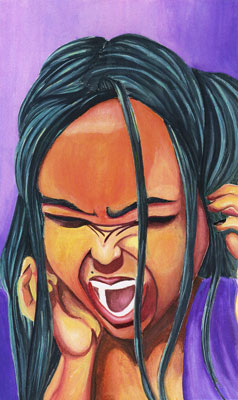All Nonfiction
- Bullying
- Books
- Academic
- Author Interviews
- Celebrity interviews
- College Articles
- College Essays
- Educator of the Year
- Heroes
- Interviews
- Memoir
- Personal Experience
- Sports
- Travel & Culture
All Opinions
- Bullying
- Current Events / Politics
- Discrimination
- Drugs / Alcohol / Smoking
- Entertainment / Celebrities
- Environment
- Love / Relationships
- Movies / Music / TV
- Pop Culture / Trends
- School / College
- Social Issues / Civics
- Spirituality / Religion
- Sports / Hobbies
All Hot Topics
- Bullying
- Community Service
- Environment
- Health
- Letters to the Editor
- Pride & Prejudice
- What Matters
- Back
Summer Guide
- Program Links
- Program Reviews
- Back
College Guide
- College Links
- College Reviews
- College Essays
- College Articles
- Back
Out of Africa MAG
I arrived in America much like a newborn infant enters life: lacking language, unfamiliar with the culture, and unaccustomed to the environment. I was the definition of a fish out of water. Clinging to a past that held no future, I trailed my parents as they led me toward the new foundation of our lives. As I watched them struggle to understand English and blend into American culture, I knew that this would be the most difficult transition my family and I would ever experience.
We began the arduous process of assimilating bits and pieces of American culture as we desperately attempted to come to terms with the finality of our move. However, no matter what we achieved, it appeared impossible to blend in when everything about our appearance, mentality, and beliefs betrayed our foreign roots. On top of that, English seemed indecipherable, and our small town refused to resemble any hint of our bustling hometown in Egypt. Nothing seemed to be going right.
Frustrated, I confronted my father.
“Why here? Why America?” I demanded.
“Because we don’t get a say in where we come from,” he answered, “but we can work to change the opportunities at our disposal.”
I didn’t understand, but with time I would.
Despite the seemingly impossible task of adapting to a new language, society, and way of life, I made friends easily. My unique background sparked curiosity, my life story attracted attention, and my eccentric appearance distinguished me.
With time, I saw the wall between cultures slowly come down. I began to embrace both cultures – American and Egyptian – like a seven-year-old first riding a bicycle without training wheels: hesitantly and delicately. In this way, I began to comprehend that perhaps I didn’t have to be one or the other. As my diversity flourished, balancing both parts of my identity became less an obligation and more a choice.
America took the form of home, and English became second nature. Before long, the warmth and bustling energy of Cairo was a distant memory.
Through this transition, our extended family was our only link to an otherwise detached country. What I knew of my family in Egypt I learned through blurry photos, short videos, and overheard conversations. But even with frequent phone calls, we became distanced from them as well. Phone calls failed to capture our changing mindset. Eventually, we adapted to the absence of the other. Drifting apart became inevitable. Even technology couldn’t prevent it. We soon became strangers to our overseas family.
This meant that instead of a return to the comforts of home, family trips back to Egypt were awkward experiences where we grasped the height of our divergence.
During these trips we recognized the differences in the quality of life as we witnessed the poverty in Egypt through Westernized eyes. Shocked, I began to clearly see the mark that America had made on me. I had become so accustomed to luxuries and privileges that I perceived Cairo as deficient. This was the life that I once was so reluctant to leave, the life I would have given up anything to return to. Now I saw it as the life my parents had heroically rescued me from.
It was during this culture shock that my father’s words returned to me.
Perhaps, his greatest gift to me was the freedom of choice. The advantage of having bountiful opportunities at my fingertips. The chance to be whoever I wanted to be and the freedom to change my mind whenever I wanted.
I understand that I may never be entirely American or Egyptian, but I am so grateful that I have the opportunity to experience both.

Similar Articles
JOIN THE DISCUSSION
This article has 0 comments.
